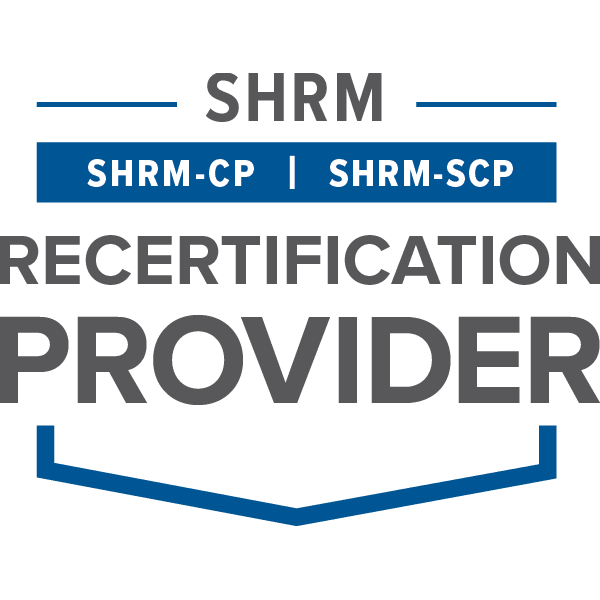
Recorded, on-demand webinars are available for HRDQ-U Members. Join today!
When it comes to rewards, one size doesn’t fit all. Reward programs need to be tailored to meet the specific needs of the recipients. What might be rewarding to one person may seem like punishment to another. Therefore, it is very important to understand what is reinforcing or not to the employees you want to reward. Expert Peter Garber will present a classic ABC (Antecedent-Behavior-Consequences) Behavioral Model and review different types of consequences as they relate to rewards, including positive reinforcement, negative reinforcement, punishment, and schedules of reinforcement. You will also explore specific examples that illustrate why the reward sponsor’s goals failed to reach their intended objectives and how the situation could be corrected.
Throughout the webinar, you will take a look at setting reward goals, finding the right measures for rewards, rewards not meeting expectations, reward design factors, managing reward programs, measuring the effectiveness of your current reward programs, the value of your reward programs, and understanding the potential consequences of the reward not given.
Peter will also present a matrix of nine types of rewards, illustrating how different types of rewards achieve different results. A common problem with many employee reward programs today is a lack of understanding of these differences. For example, an organization may sponsor an annual holiday party, expecting a certain amount of employee appreciation as a result. However, it is important to understand that this type of reward will most likely not motivate employees to work harder or be less likely to leave the company. This is not to say that a holiday party isn’t important, as it provides a maintenance reward factor that employees learn to expect to be provided by their employer, and without this form of reward, they would feel a sense of loss. The matrix provides examples of other types of rewards, some of which are designed to directly motivate employees or recognize their significant achievements. Understanding these distinctions and applications of these nine types of rewards can help organizations more effectively design and balance their overall employee reward programs with better results in the future. You will also be introduced to the concept of developing a reward scorecard using an example to help organizations understand how to achieve this balance.
The program concludes with a list of 47 unconventional ways to reward employees to help organizations think more creatively about providing rewards. Often, it is the most unexpected reward that can be the most effective.


What’s My Communication Style
Effective communication is essential for organizational success and employee engagement. However, personality-based conflicts can often disrupt teamwork and productivity. What’s My Communication Style offers assessments, workshops, and tools to help teams understand and adapt to various communication styles, minimize conflict, and enhance team dynamics, ultimately boosting engagement and productivity.
Take 15% off with code WMCOMMSTYLE15
Offer valid through 1/21/25
Peter R. Garber is a retired Human Resource Professional with over 35 years of experience working for a Fortune 200 corporation. During his career, he held a variety of HR roles, including assignments at manufacturing facilities across the country, and later spent twenty years at the company’s corporate headquarters. He is the author of over 50 books and learning activities on HR and business-related topics. He has been invited to present seminars and webinars on numerous occasions based on his works and has made presentations at international conferences and colleges. Peter was also an adjunct instructor at the University of Pittsburgh Business School.
Peter became interested in the topic of employee reward programs as a result of observing firsthand just how difficult it was to get them right. He noticed that many of the organization’s efforts to provide employees with meaningful rewards often failed to meet this objective. He realized that there needed to be greater thought and analysis given to designing employee reward programs to ensure their effectiveness. This program is a result of his research and experience designing more effective employee reward programs.
Connect with Peter through email at prgarber2110@yahoo.com.
Training Tools for Developing Great People Skills
This event is sponsored by HRDQ. For 45 years HRDQ has provided research-based, off-the-shelf soft-skills training resources for classroom, virtual, and online training. From assessments and workshops to experiential hands-on games, HRDQ helps organizations improve performance, increase job satisfaction, and more.
Learn more at HRDQstore.com

“It was great to have extra examples and ideas to consider from an HR perspective.”
Maria G.
Healthcare Consultant
Legacy LTC Solutions

“It was great to hear someone else’s perspective on how employees may interpret something as a reward and others may interpret that same action as a form of punishment.”
Abby P.
Benefits Administrator
Veridian Credit Union

“He did an excellent job. Thanks!”
Hero G.
Soil Scientist
USDA-ARS

Discover practical ways to lead with kindness, build stronger teams, and create a workplace where people feel valued, heard, and motivated – you’ll walk away with strategies you can apply immediately to your workplace.